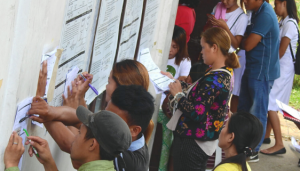THE city government has asked President Ferdinand R. Marcos Jr. to set aside P3.486 billion for the implementation of the waste-to-energy (WTE) project of the city.
In a resolution filed before the city council, the amount will represent the country’s counterpart in the implementation of the project, which will set up WTE facilities, which the Japanese government is partially funding through a grant.
In his explanatory note, Councilor Temujin Ocampo, sponsor of the resolution, pointed out of the state of the “sanitary landfill, which is almost filled to the brim, and the exponential growth volume of its solid waste, necessitate the adoption and the application of existing technologies that address solid waste management.”
Ocampo cited the WTE as among the existing technologies to address solid waste management which has been adopted worldwide. The technology, he added, “does not only significantly reduce the volume of solid waste being dropped in a sanitary landfill, but also contribute and provide one of the most important resources, energy.”
Mayor Sebastian Duterte has pushed for the project, which was started during the term of his father, former President Rodrigo Duterte, when he was still a mayor, and was also being pushed by Vice President Sara Duterte, during her term as mayor.
The mayor said the project is important “will become precedent (in the country) and that this is important because this is a grant” as the Japanese government approved about 5.013 billion yen for the project in 2018.
The mayor has brought the project to the attention of the Department of Environment and Natural Resources so that it can be considered for funding.
However, Duterte said he understands the predicament of the national government because of the lesser budget due to the impact of the pandemic.
Based on the data from the City Environment and Natural Resources Office, the city generates about 700 metric tons of garbage a day, about or about 220 metric tons more than what was generated about 10 years ago.
Just about a decade ago, some companies proposed that they be allowed to use the garbage of the city to come up with energy generating facilities, but the lack of garbage prompted the city government to reject the project as one company was seeking about 1,000 tons of garbage a day to make the facility viable.
In 2015, the Japan International Cooperation Agency conducted a feasibility study on the viability of the proposal and found it viable.
About three years later, the Japanese government informed the city government that it would grant funding for the setting up of the facilities for the project.
However, environmental groups like the Plastic-Free Pilipinas have opposed the project because of what they claimed as danger to the environment because the project would need to burn waste and might emit dangerous chemical components to the environment.





